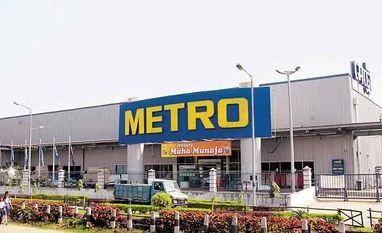Besides, Metro is also helping its customers in Kirana and traders segment to digitise their business.
"Post GST, HoReCa segment has started growing much faster and on the basis of that we are going on HoReCa in a big way," Metro Cash & Carry India CEO and MD Arvind Mediratta told PTI.
More From This Section
It is presently 15 to 16 per cent of our total sales and we believe that this is a segment in the years ahead, he said further.
People are now preferring more to dine outside as disposable income is on rise here, he added.
"Our estimate is that there are around 1.3 crore HoReCa businesses in the country, which is more than the number of kirana shops in the country, which is around 1.2 crore," said Mediratta.
The company is projecting itself as one stop destination as HoReCa segment's assortment need.
Metro plans to help its b2b customers with HoReCa digital under, which it set up websites for small restaurants and also help in developing their menu and improving their quality free of cost.
"We can help them with their food cost by modernising their supply chain. Right now they follow basic practices," he said, adding that it would also share the practices followed by big global firms in supply chain.
Over the menu development, he said:" All dhabas sell basic Indian food but it it not very difficult to make burgers like McDonald's. We can sell them burgers, frozen patties, mayonnaise... We can help them to have pasta on their menu".
Besides, the company is now focusing on smaller kiranas.
"This is the segment which has not been touched by the distributors of FMCG companies and there is a big distribution opportunity and many big companies want Metro to be preferred route to the market," he said.
In this segment, Metro is helping them by providing them hardware and software to track their daily sales and profitability.
"We are looking for digitalisation of kiranas in a very big way and we have already placed about hundred machines with devices to kirana store owners in Bengaluru and Hyderabad," Mediratta said.
The cost of per unit is around Rs 35,000 and Metro provides these machines to kirana customers for free.
"It can track, which are the top selling items and which are the slow items like any other modern retailer," Mediratta said, adding that it will help kirana stores to send messages to their customers about special promotion plans.
The company plans to have 50 stores by 2020. It has made 24 stores operational already and rest 26 would be opened in next two years.
The company, which follows October-September financial year, has reported a sales of 798 million Euro (Rs 6,242 cr) in FY 2016-17, representing a growth of 16 per cent.
"Last year, we were impacted by GST and demonetisation as both the headwinds came in the same financial year, despite that we have grown by 16 per cent," Mediratta said.
)